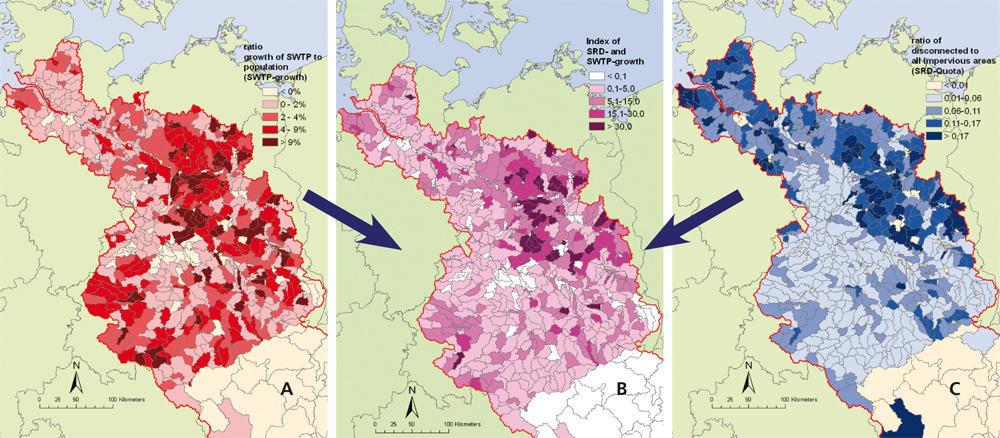Cities often make dynamic changes on top of the earth but neglect new developments down below. Conventional networks and units for water supply and wastewater disposal incur huge costs for maintenance, repair and renovation but are not at all flexible when it comes to dealing with changes in conditions such as climate change, demographic fluctuations and new environmental challenges. It is important to find innovative sustainable alternatives for out-of-date systems. Small-scale systems with modular components can be adapted to work with modern technologies. These are often more flexible than conventional units operating on the same level and can easily be adapted to cope with changes in conditions. The is convinced that new concepts based on these systems are the best way to set up sustainable water supply and wastewater disposal systems.
Sustainability tests are carried out to help decision-makers decide whether an existing water management system can be made fit for the future and which management strategy is worth following.
Sustainability analyses reveal which parts of a plant need to be modernized and recommend radical changes in concepts when this is the better solution for existing water infrastructure systems. These analyses are also essential for deciding which solution is best for each specific situation and aim at describing all aspects of direct and indirect effects of water management systems.
From an ecological point of view, it is important to consider the element input in waters as well as the efficient use and recycling of resources.
For economic assessments, the comparatively long life of important components (e.g. distribution and sewage networks) is a major aspect. Comprehensive assessments should include e.g. whether changing general conditions can be taken into consideration.
Social and technical aspects (acceptance, convenience and security) are also highly relevant and should not be neglected.
 Fraunhofer Water Systems Alliance (SysWasser)
Fraunhofer Water Systems Alliance (SysWasser)